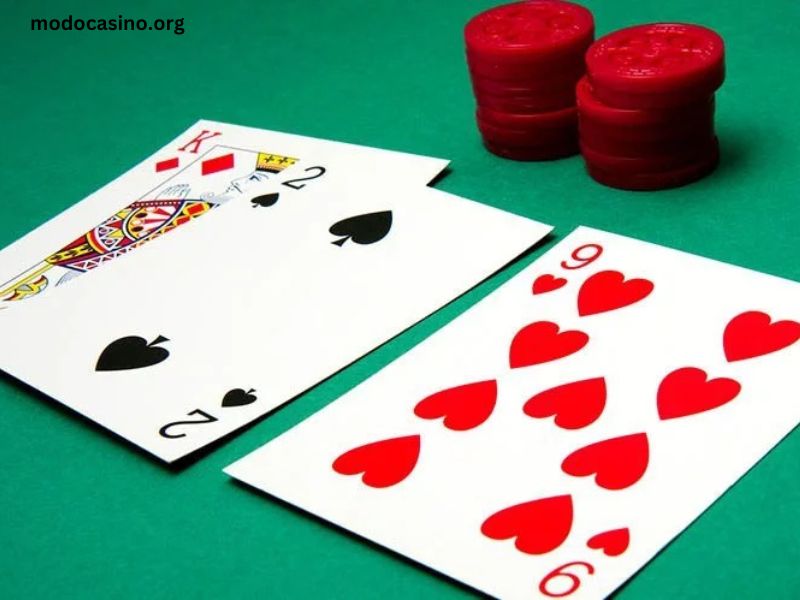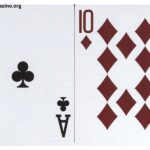Blackjack, a timeless casino game, has captivated players for centuries with its blend of skill, strategy, and luck. Among the various moves available to players, doubling down stands out as a powerful tactic that, when executed correctly, can significantly increase your chances of winning. In this comprehensive guide, I will delve into the intricacies of doubling down in blackjack, exploring the mathematical theory behind it, the key considerations, and the strategies for specific starting hands.
As an experienced blackjack player, I have witnessed firsthand the potential of doubling down to maximize winnings. However, it’s crucial to understand that this move is not a one-size-fits-all solution; it requires a deep understanding of the game’s mechanics and a keen eye for recognizing favorable situations. Throughout this article, I will share my insights and expertise, equipping you with the knowledge to make informed decisions and elevate your blackjack game.
Understanding the basic rules of blackjack
Before we dive into the nuances of doubling down, let’s revisit the fundamental rules of blackjack. The objective of the game is to achieve a hand value as close to 21 as possible without exceeding it. Players are dealt two cards, and their hand value is determined by the sum of the card values. Face cards (Kings, Queens, and Jacks) are worth 10 points, while Aces can be valued as either 1 or 11, depending on which value is more advantageous for the hand.
Players compete against the dealer, with the goal of having a higher hand value without exceeding 21. If a player’s hand exceeds 21, it is considered a “bust,” resulting in an automatic loss. The dealer must follow specific rules regarding hitting (taking additional cards) or standing (keeping the current hand).
What does it mean to “double down” in blackjack?
Doubling down is a strategic move that allows players to double their initial bet after receiving their first two cards. When a player chooses to double down, they place an additional bet equal to their original wager. In exchange, they receive one and only one additional card from the dealer.
This move is particularly advantageous when a player’s starting hand is strong, and the chances of improving their hand value without busting are favorable. By doubling down, players essentially double their potential winnings if their hand beats the dealer’s hand.
The mathematical theory behind doubling down
The decision to double down is not merely a matter of gut instinct; it is rooted in mathematical probability and expected value calculations. The expected value (EV) is a concept that determines the long-term profitability of a particular move or strategy in blackjack.
When a player’s starting hand has a favorable EV for doubling down, it means that over an extended period, doubling down in that situation will yield a positive return on investment. Conversely, doubling down with an unfavorable EV will result in a negative expected return, making it a suboptimal move.
Experienced players and mathematicians have meticulously analyzed various starting hand combinations and dealer upcard scenarios to determine the optimal doubling down strategy. These calculations take into account the probabilities of drawing specific card values, the potential hand outcomes, and the corresponding payouts or losses.
When to double down in blackjack: key considerations
While the mathematical theory provides a solid foundation, there are several key considerations that should guide your decision to double down. These factors include:
- Your starting hand value: Certain starting hand values are more favorable for doubling down than others. For instance, hands with a total of 11 (e.g., 6-5 or A-10) are generally considered strong candidates for doubling down, as they have a high probability of achieving a desirable hand value without busting.
- The dealer’s upcard: The dealer’s upcard, which is the card visible to all players, plays a crucial role in determining the optimal doubling down strategy. Certain dealer upcards increase the likelihood of the dealer busting or having a weaker hand, making it more advantageous for players to double down.
- Number of decks in play: The number of decks used in a particular blackjack game can influence the probabilities and expected values associated with doubling down. Games with fewer decks tend to have more favorable conditions for players, as the remaining cards can be more accurately predicted.
- Table rules and variations: Different casinos and blackjack variants may have specific rules regarding doubling down. For example, some games allow players to double down on any two cards, while others restrict doubling down to certain hand values or after splitting pairs. Understanding these rules is essential for making informed decisions.
Doubling down strategy for specific starting hands
To further illustrate the application of doubling down strategy, let’s examine some common starting hand scenarios:
- Hard totals: A hard total refers to a hand value where the Ace is counted as 1 point. Generally, it is advisable to double down on hard totals of 9, 10, or 11 when the dealer’s upcard is a low value (2 through 6). These hands have a high probability of achieving a favorable total without busting.
- Soft totals: A soft total is a hand value where the Ace is counted as 11 points. Doubling down on soft totals is often recommended, as the flexibility of the Ace allows for a wider range of favorable outcomes. For example, doubling down on a soft 18 (A-7) against a dealer’s upcard of 3, 4, 5, or 6 is a statistically sound move.
- Pairs: When dealt a pair (two cards of the same rank), players have the option to split their hand into two separate hands, each receiving an additional card. Doubling down after splitting pairs can be a profitable strategy in certain situations. For instance, splitting and doubling down on a pair of 8s against a dealer’s upcard of 5 or 6 is considered a favorable move.
Common misconceptions about doubling down
Despite its strategic importance, there are several common misconceptions surrounding the practice of doubling down in blackjack. Let’s address a few of them:
- Doubling down is a high-risk move: While doubling down does involve increasing your bet, it is not inherently a high-risk move when executed correctly. In fact, doubling down in favorable situations can actually reduce the overall risk by capitalizing on advantageous odds.
- Doubling down should be avoided with a high hand value: This misconception stems from the fear of busting. However, in certain situations, doubling down with a high hand value (e.g., a hard 11 or a soft 18) can be a mathematically sound decision, depending on the dealer’s upcard and the game’s rules.
- Doubling down is only for experienced players: While experienced players may have a deeper understanding of doubling down strategies, the fundamental principles can be learned and applied by players of all levels. With proper guidance and practice, even novice players can incorporate doubling down into their gameplay effectively.
Tips for maximizing your winnings through doubling down
To fully leverage the power of doubling down and maximize your winnings, consider the following tips:
- Study and practice doubling down strategies: Familiarize yourself with the optimal doubling down strategies for various starting hand combinations and dealer upcards. Practice through simulations or by playing at online casinos with free play options.
- Manage your bankroll effectively: Doubling down involves increasing your bet size, so it’s crucial to manage your bankroll responsibly. Set a budget and stick to it, avoiding the temptation to chase losses or deviate from your predetermined betting strategy.
- Utilize basic strategy charts: Basic strategy charts provide a visual representation of the recommended plays for every possible hand combination. Refer to these charts, especially when you’re starting out, to reinforce your understanding of doubling down strategies.
- Understand the game rules and variations: Different blackjack variants and casino rules can impact the effectiveness of doubling down strategies. Research the specific rules of the games you plan to play and adjust your approach accordingly.
- Stay disciplined and emotionally detached: Doubling down can be an exhilarating move, but it’s essential to maintain emotional discipline. Avoid letting emotions like fear or greed influence your decisions, and stick to the mathematically sound strategies you’ve learned.
Practice and refine your doubling down skills
Mastering the art of doubling down in blackjack is a journey that requires dedication and practice. One effective way to hone your skills is by playing at online casinos that offer free play or low-stakes games. This allows you to apply your knowledge in a risk-free environment and gain valuable experience without risking significant funds.
Additionally, consider participating in blackjack tournaments or joining a local blackjack community. These settings provide opportunities to learn from experienced players, receive feedback, and refine your strategies through friendly competition.
To help you practice and refine your doubling down skills, I highly recommend checking out our free blackjack simulator. This interactive tool allows you to play countless hands and experiment with different doubling down scenarios, all while receiving real-time feedback and analysis. Visit [insert link] to access the simulator and take your blackjack game to new heights!
Conclusion
Doubling down in blackjack is a powerful strategic move that, when executed correctly, can significantly increase your chances of winning and maximize your potential winnings. By understanding the mathematical theory behind doubling down, recognizing favorable situations based on your starting hand and the dealer’s upcard, and practicing disciplined decision-making, you can elevate your blackjack game to new heights.
Remember, mastering the art of doubling down is a journey that requires dedication, practice, and a willingness to continuously learn and adapt. Embrace the challenge, stay focused, and enjoy the thrill of capitalizing on advantageous opportunities through strategic doubling down.




